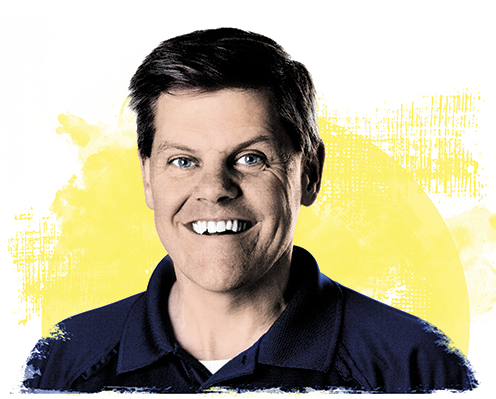AMERICAN MOTORCYCLIST MAY 2020
Community in crisis
No Escaping Serious Business

By Rob Dingman
The last thing you want to read about in a motorcycle magazine is the global coronavirus pandemic. You are no doubt reading this magazine at least in part to escape all the news about the health crisis, which has become impossible to escape. So let me apologize up front, but as you might imagine, this topic has occupied virtually all of my time over the last few weeks, and I have typically used this space to share with you information about my work on behalf of the AMA.
This crisis and our government’s response to it has already had a tremendous impact on your association, and that impact will likely be felt for years to come. To be clear, it is not my intention to second-guess the actions of our federal and state governments to address this nightmare of a problem. Rather it is my intention to explain the impact those actions have had and will continue to have on our organization.
As you know, for many of our members, their primary (if not only) motivation to join the AMA is event participation. At press time, at least 20 states had issued stay-at-home orders and other directives prohibiting events for which our members join. Many others, and likely all states, are expected to follow with their own orders soon. The cancellations of so many events will continue to negatively impact our membership for the foreseeable future.
Once we began to see events being canceled, the AMA issued a statement, which strongly encouraged AMA-chartered organizers to comply with all restrictions imposed by federal, state and local authorities affecting all applicable AMA-sanctioned activity. Some wrote to us and said that this did not go far enough and that we should cancel all AMA events nationwide. What is important to understand is that these events are not AMA’s events to cancel. We are not the organizer of these events, and it is the organizer whose money is at risk. That is why the statement was worded as it was.
The most visible example of this is the AMA Supercross Championship. Feld Entertainment, the series promoter, did everything in its power to attempt to run as many remaining rounds as possible, including considering running an event with no crowd. In the end, limits placed on crowd size by state governments proved impossible to overcome, and Feld decided to complete the series later in the year after things have hopefully settled down. As a global brand whose business is to put on as many as 5,000 events annually in 75 countries all around the world, Feld has been particularly hard hit by this crisis and was forced to lay off a significant number of its employees.
These last few weeks have presented a glaring reminder that the AMA is a business that faces the same challenges as every other business in this country. As the situation emerged, we put to work strategies to keep as much of our staff employed as possible throughout the crisis. We had hope that Congress would provide relief but sadly, our organization did not qualify for the largest relief initiatives Congress enacted due to our tax status.
Congress provided payroll relief to what are known as 501(c)(3) nonprofit organizations and not to nonprofit organizations like the AMA that are incorporated under section 501(c)(4) of the IRS code. Eligibility would have let us continue to pay staff in the face of limited incoming revenue. Although we were included in the version of the bill that was originally negotiated, we were removed during the delay in Senate passage.
Unfortunately, due to canceled events and other suspended activity combined with the failure of Congress to provide organizations like ours needed assistance, layoffs became unavoidable. A strategy to achieve a reduced work schedule was implemented for remaining staff.
Most of you received a letter from me discussing the crisis and its impact on the AMA and motorcycling in general. In it, I stressed the importance of community. The social distancing requirements imposed on us throughout the nation impede our ability to interact in close quarters, but they don’t prevent us from continuing to be a community, bonded by our love of motorcycling.
In my letter, I also encouraged you to get out and ride to combat anxiety caused by this health crisis. While that message was celebrated by many, it was criticized by some who suggested that we shouldn’t risk injury and needlessly put more stress on the healthcare system. In fact, the CEO of the Fédération Internationale de Motocyclisme recently issued a statement discouraging leisure riding.
I have been a lifelong advocate of personal responsibility, and I encourage you to use your own judgement when it comes to riding during this crisis. No matter on which side of this issue you find yourself, as I also pointed out in my letter, if you can’t ride, you can still plan future riding trips, talk about riding with friends (at an appropriate social distance of course) and think about riding.
I would be remiss if I did not include a plea for you to continue to support the AMA and renew your membership. Given the AMA’s reliance on our organizers’ ability to hold events to grow the ranks of our membership, this crisis could have a devastating financial effect on our organization. There is no way to know what it will look like on the other side of this crisis, but I can assure you the threats to motorcycling will be greater than ever. The best way to help is to renew—or extend—your membership today!
Rob Dingman, a Charter Life Member, is president and CEO of the AMA.
